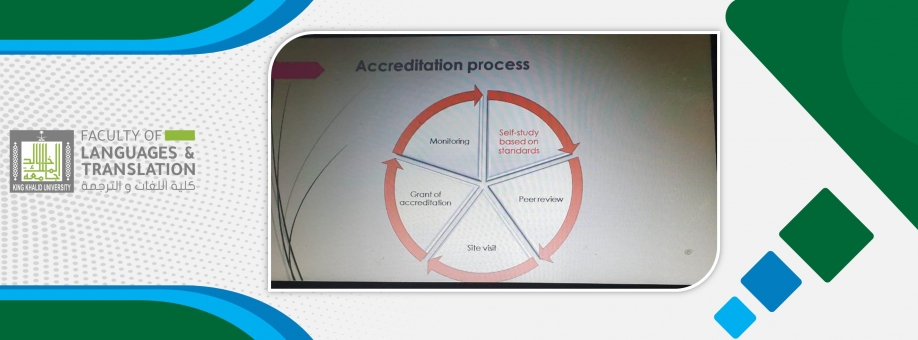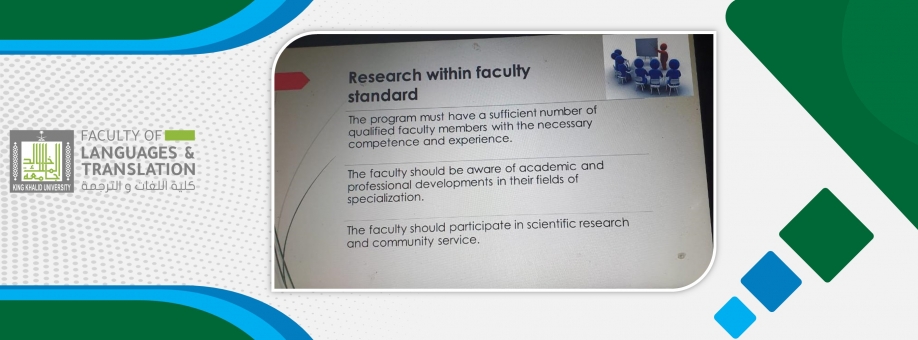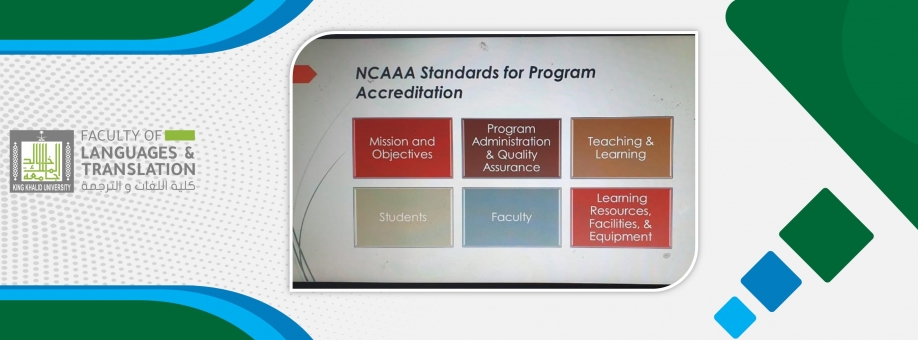FLT Announces New PhD Program in Applied Linguistics
Under the supervision of Dean Abdullah Al-Melhi, the Faculty of Languages and Translation has received approval to launch its first doctor of philosophy (PhD) program, beginning fall 2020.
The degree will be in applied linguistics and under English Department supervision. The approval comes from the Ministry of Education in line with the National Commission for Academic Accreditation and Assessment (NCAAA) standards in time for fall enrollment to begin.
"We have many gifted language teachers and researchers in the region who could, through the Doctor of Philosophy in Applied Linguistics program, enhance their qualifications and skills, making it possible for them to contribute to the solution of practical language problems that occur in educational and professional institutions locally and regionally," said Vice Dean for Higher Studies and Scientific Research, Dr. Munassir Alhamami.
The decision to expand the FLT's graduate programs is best characterized as a team effort with many colleagues over the years participating. While we cannot individually recount each person for their contributions, we are deeply appreciative to all who generously donated their time and effort.
The primary target audience for the PhD in Applied Linguistics includes new professionals who have recently graduated from a master's program in applied linguistics, licensed Ministry of Education English teachers who hold a Master of Arts in Applied Linguistics or a related field, and highly qualified international students with native-like fluency in both Arabic and English.
For more information about the new program, please contact Graduate Programs Coordinator, Dr. Ismail Alrefaai, at ikalrefaai@kku.edu.sa or visit https://flt.kku.edu.sa/en/content/2288. Apply by visiting the Deanship of Admissions and Registration's website at https://registration.kku.edu.sa/kku/ui/guest/application_online/index/typeHighApplicationOnlineIndex.faces.
Date: 5/15/2020
Source: Faculty of Languages & Translation



